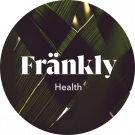Should A Recovering Addict Use CBD?

Introduction to CBD
CBD is a naturally occurring chemical found in marijuana plants. It is a cannabinoid that was discovered in 1940 and can make up around 40% of the plant’s extraction. Using CBD in isolation doesn’t cause a ‘high’ as it is missing THC, which is another chemical that can be found in marijuana plants.
Between 2017 and 2018, the number of CBD users is expected to have doubled, there are a number of reasons for this which include; increased legalization and expansion into multiple new industries. The extreme growth of CBD products is expected to continue in the coming years, with a prediction being made that the global CBD market could be worth $20 billion by 2024.
CBD can be derived from two separate types of the cannabis plant, these are; marijuana and hemp, and there is a difference in the effects caused by each of these. Any CBD which comes from hemp will have 0.3% THC, whereas, any which is derived from marijuana is likely to be grown with its ability to create a ‘high’ in mind.
Uses of CBD
Through new and consistent research, there have been many new uses found for CBD, especially in recent years. However, the first recorded use of cannabis as a medicine can be found from 2737 BC as a Chinese Emperor called Sheng Nung. He drank cannabis-infused tea, this was rumoured to be helping him with multiple illnesses such as; gout, malaria and rheumatism.
With more studies being done, and our understanding of CBD increasing, this has allowed CBD to become a more commonly used and trusted product as many people were extremely sceptical about its benefits when it was first successfully isolated from the rest of the marijuana plant in 1940.
There is a large range of applications that people now use CBD for, these can range from anxiety management and pain relief to seizure prevention and acne reduction. Just these four uses alone can demonstrate the different industries CBD has had an impact on and why continued research is extremely important.
Many people have found that CBD is extremely beneficial for them, and there are many others who are suffering in a situation that could potentially be improved by taking CBD. This can be shown by a YouGov survey carried out in the UK which found that 74% of UK adults have a strong feeling of stress and feel as though they’re unable to cope with many things which get thrown at them in life.
Information About Addiction
First and foremost, if you or people around you believe you are struggling with an addiction that is having a significantly negative impact on you, then it’s key that you seek out professional help if possible.
Addiction is a psychological and physical need to continue consuming something, despite any negative consequences which might be caused as a result of consumption. There are many different things that someone can become addicted to, including drugs, alcohol and smoking.
As a result of more focused research and a mission to destigmatize addiction, and those struggling, it has been found that there is a major genetic component to addiction that makes some people naturally predisposed to becoming addicted, but usually, this does need to be combined with other life events and/or personality traits in order to cause a big problem.
A study has found that nearly 21 million Americans suffer from at least one addiction, however, only 10% of these people are actually receiving treatment. In addition to this, it has been found that around 20% of people living in America who have anxiety and / or depression, will also be people who struggle with substance addiction. These statistics show that the stigma which surrounds addiction is one which is damaging millions of people who, instead of being made to feel ashamed, should be receiving help.
CBD and Addiction
There has been a lot of research into whether CBD could actually help recovery from substance addiction. Additionally, as CBD doesn’t contain THC, scientists have said that the potential that it could be abused is limited.
The main part of addiction recovery that scientists have focused on using CBD for, is the ability to avoid a relapse. Research has found that because CBD is regularly used to manage and minimise anxiety and stress, it can help to reduce the chances of drug cues being triggered in the brain which as a result will make the chance of relapse much smaller.
In terms of how this works scientifically, the main neurotransmitters which influence addiction are glutamine and dopamine. These have an influence because they are related to the ‘reward’ centres in the brain, meaning they have the ability to increase both the effect of drugs and the potential of relapse. The way CBD can help this and reduce the chance of relapse is because it influences the ‘endocannabinoid system’ which is made up of multiple receptors, known as CB1 and CB2 in addition to some chemicals called endocannabinoids. The binding of endocannabinoids with CB1 or CB2 receptors leads to regulatory effects on the body which in term has an impact on some levels of neurotransmitters. Therefore, CBD can limit the effect of some neurotransmitters which can, in turn, minimise the potential of relapse.
Additionally, it is thought that using CBD during recovery from an opioid addiction can be extremely beneficial. The reason for this is that some of the signs of opioid withdrawal are the same as ailments that can be managed by CBD. Examples of symptoms that appear in both categories are; nausea, anxiety and insomnia.
Despite these clear positives, it is important to remember that more studies need to be carried out on humans, which means it is best to discuss taking CBD with a professional.














